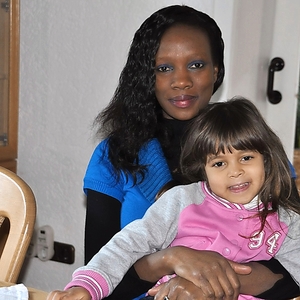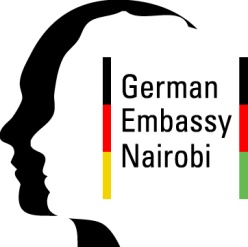Contrary to popular belief, Kenyans are still getting au pair visas to Germany.
Of course the Embassy has increased the hurdles to make sure the only applicants getting au pair visas are those that plan to use it for cultural exchange and to improve their language skills, unlike what we’ve been using it for, but that’s a different story.
So to the high school students learning German or would like to learn German after school, here’s what you need to know before applying for the au pair visa.
Contents
Requirements
- 18-27 years of age
- Basic German, at least A1
- Single with no children
- Never been an au pair in Germany before
- Able to pay for your travel expenses
Regulations on Agencies and Host families
- German law allows au pair agencies based in Germany to charge no more than €150 (plus 19% taxes). This should be charged after the au-pair contract begins.
- The Au pair shouldn’t be related to the host family in any way
- In the case of a (foreign) host family living in Germany, the au pair and the host family shouldn’t come from the same country
Duties of an Au Pair
- The main responsibility is to look after the children of the host family.
- Helping with light housework.
- Preferably talk to the host family in advance about your exact duties and the working hours required of you and include them in the au pair contract before signing it.
Travelling to Germany
- Get a host family, you can do this via an agency (Reputable Au Pair Agencies) or via an online portal
- Get a signed contract, invitation letter and Verpflichtungserklärung from the host family. These should usually be in their original form, so don’t use scanned copies. The Au Pair world offers their own invitation letter and contract that you can download.
- Book for your visa appointment at the German Embassy in your country. In Kenya it’s currently a nightmare to get an appointment. According to the au pairs who’ve coming in in the last few months, the secret is to check for the appointments in the wee hours of the morning between 1am and 3am Kenyan time.
- Upon your arrival in Germany, your host family should register you at the Residents’ Registration Office (Einwohnermeldeamt) and the Aliens Registration Office (Ausländerbehörde). The residence permit will first be issued for 3 months and must be extended afterwards.
- As of 1 September 2011, au pairs in Germany need to apply for an electronic residence title, the so-called “Aufenthaltstitel”, at the Aliens Registration Office in their host country. For this purpose, a biometric passport photograph is required. Costs vary depending on the duration of the residence the au pairs apply for. The process of issuing a residence permit, which is valid for up to one year, costs 100 euros. According to present experiences, it may take 3 to 4 weeks until the residence permit is handed out. Therefore, we recommend that you ask the local Aliens Registration Office about this matter in time.
Working hours, Holidays, Freetime, Language courses, pocket money
- An au pair receives at least €260 a month
- An au pair should not work more than 6 hours daily or 30 hours weekly. Any extra time worked beyond that is considered overtime.
- You are entitled to at least one day off per week. Once a month, this day should be a Sunday. Your host family should make sure that you get at least 4 evenings off per week.
- An au pair must always be accommodated in an individual room in the family’s home. This room must have a window and a dimension of 9 square metres. It should also be lockable and heatable. Some families will opt to pay for accommodation outside the home for the au pair.
- An au pair is entitled to a paid holiday of 4 weeks, provided that the au pair stays with their host family for a whole year. Families which go on a holiday usually take their au pair with them. During this time, you will perform your regular duties by looking after the children.
- Accompanying your host family on their holiday does not count as your au pair holiday, unless you have fewer duties and are not obliged to be available at all times. In this case, it is considered your holiday, as well. Not accompanying your host family on their holiday does not entitle you to work for a different family during this time.
- The host family should offer the au pair the opportunity to attend a German language course during their spare time. Non-EU au pairs who have signed their au pair contract after 1 July 2013 will receive 50 euros a month (in addition to their pocket money) for their language course.
Insurance
- The family should pay for the au pair’s health insurance even in cases of pregnancy, birth and illness.
Cancelling your contract
The contract automatically cancels at the end of the year. However, incase the au pair or the family feels they need to cancel the contract before the year ends, then the au pair should be given time to find another family and the host family should be given enough time to find an alternative. The agency should also be involved in this process.
Helpline:
- Au pairs are advised to use agencies that are in Germany whom they can call on incase of any issues with the family. However, the „Gütegemeinschaft Au-pair e.V.“ offers a helping hand to au pairs left on their own. They also run the au pair HOTLINES: 0800 111 0 111 or 0800 111 0 222
Other references:
What is Au Pair?
Changes to Au Pair requirements
New Laws for Non-EU Au Pairs and Families








